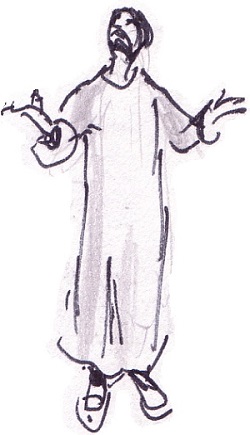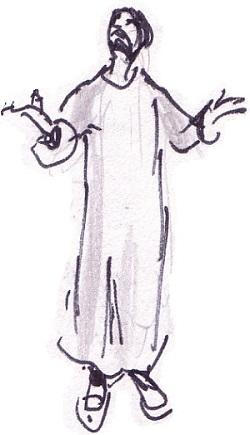

“Forgive us our sins for we forgive others in debt to us” (Luke11:4).
Gal 2:1-2, 7-14; Luke 11:1-4
Our Lady of the Rosary
It should be no surprise that Jesus emphasizes forgiveness as essential to prayer. When his disciples asked him to teach them how to prayer, he first drew them into his own relationship with God as the Abba, Source of all mercy. Prayer is about bringing heaven to earth, so they had to be ready to be as merciful as their heavenly Father. To maintain this intimacy with God, they must be merciful.
Jesus knew that the one thing that could cut the disciples off from God had to do with forgiveness. If they refused to forgive others, they would block the flow of forgiveness from God. We know from experience that the greatest obstacle to prayer is when we brood over injury, let anger and resentment enter our hearts. To shut the door on a brother or sister is to shut the door on God, for it is the same door. We say the words, but they feel empty. Only reconciliation with one another can restore our intimacy with God.
Jesus must have anticipated that there would be a continuous need for forgiveness and reconciliation to establish the church. Fierce controversies were inevitable, and we see this in Paul’s Letter to the Galatians. The two great founding Apostles, Peter and Paul, quarrel over a question that threatened to split the church wide open: Are we saved by grace or is keeping the Law also necessary? Can Gentile converts be saved by Jesus without becoming Jews first? The Gospel of mercy and the future of the church hang on this question. Paul opposes Peter to his face and calls him a hypocrite.
The church survived and grew only by the power of continual forgiveness. All the apostles were sinners, quarrels were necessary to find the truth, everyone had to ask forgiveness for the harsh words and hard feelings that occurred as the faith of the church was hammered out in dialogue and prayer.
The "Our Father" is the prayer that enables us to survive the conflicts that come with growth and change. The peace Jesus promises is not an artificial calm or pretend civility; it is the fruit of the hard work of finding common ground, the mutual respect even enemies must hold for each other within the process of debate and compromise. Only forgiveness can hold the church and society together during the most difficult conversations needed to resolve differences.
Many rosaries said by older Catholics occur during the sleepless hours of the night when seniors struggle to give and receive forgiveness for the sins that resurface when reviewing the past and reliving old conflicts. Every life has its joyful, sorrowful and glorious mysteries, and only with the grace of God and a mother's unconditional love can we own and celebrate them all.
Advertisement








